The Master
 for sexual content, graphic nudity and language.
for sexual content, graphic nudity and language.
Reviewed by: Tober Corrigan
CONTRIBUTOR—first time reviewer
| Moral Rating: | Extremely Offensive |
| Moviemaking Quality: |
|
| Primary Audience: | Adults |
| Genre: | Drama |
| Length: | 2 hr. 17 min. |
| Year of Release: | 2012 |
| USA Release: |
September 14, 2012 (5 theaters, then widening) DVD: February 26, 2013 |
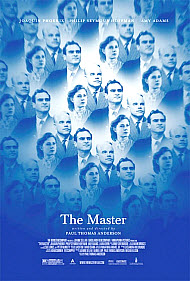

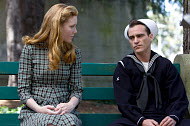



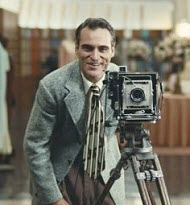
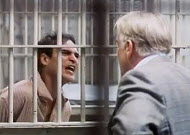

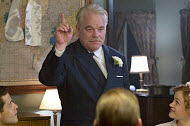


charismatic religious cult leader
What are the top ten cults in the U.S.? Answer
Are you the victim of mind control? Answer
A simple test that helps to determine if the group you or a loved on are involved in could be considered a cult.
What should followers of Christ do when cults coming knocking? Answer
With so many cults and denominations, how can I decide which are true and which are false? Answer
drunk alcoholic
| Featuring |
Philip Seymour Hoffman … Lancaster Dodd Amy Adams … Peggy Dodd Joaquin Phoenix … Freddie Quell Laura Dern … Helen Sullivan Rami Malek … Clark See all » |
| Director | Paul Thomas Anderson—“There Will Be Blood,” “Magnolia” |
| Producer |
Annapurna Pictures Ghoulardi Film Company See all » |
| Distributor |
A blue-green haze. Swirls of foam. A vast and immeasurable horizon. This is the first scene we encounter in Paul Thomas Anderson’s new film, “The Master.” The limitless expanse describes with visual brevity the many mysteries that surround the narrative and meaning of the rest of the movie. Anderson chronicles the life of a mentally ravaged World War II veteran, Freddie Quell (Joaquin Phoenix), who attempts to assimilate back into the life of 1950s America. After failing to keep a steady job, he stumbles onto a ship heading to New York. The commander is Lancaster Dodd (Philip Seymour Hoffman), a leader of a cult group named The Cause (causing much controversy for its similarities to Scientology). Lancaster, and his family of followers, take in the renegade Quell.
Looking to increase their size, The Cause stops along the East coast, hosting revivals and increasing their membership. Lancaster’s religion follows a track of thinking that human beings have lived as many different forms throughout centuries past. By putting human subjects into hypnotherapy, he sends people back to a place in which they existed before but never realized. While the movie does not reveal much concerning the laws and rules that form this religious sect, the film spends the remainder of its time observing the exploits of the rather unconventional family that is the head of it all. The rest of the film’s plot (albeit one bereft of any conventional structure) follows the Master-Protégé tandem of Quell and Dodd as they act and react to the ever-increasing popularity of The Cause.
Every view feels skewed and mysterious, whether it’s the untamed beast of Freddie Quell, the bottled up giant of Lancaster Dodd, or even the domineering robotics of Lancaster’s wife, Peggy (Amy Adams). Each character feels otherworldly, with murky intentions and motivations. Why would Lancaster Dodd, a man with so much to lose, want to help the wayward Quell? Why does Quell seem trained and docile one moment but a loose cannon the next? Questions plague the film, many lingering past the end credits.
With these questions, however, comes a bombardment of objectionable content. Freddie Quell delivers most of the debauchery. He swears, he fights, he has intercourse with women, and he makes poisonous concoctions to feed his rather unique form of alcoholism. The film has over two-dozen uses of the “F” bomb, as well as using “s**t” “d**n” and God’s name in vain on a number of occasions. Full frontal nudity of women, multiple acts of masturbation, heavy sexual language, and other explicit scenes of sexuality pervade the picture. This is one morally corrupt film, often showing humanity at its most animal.
Spiritually, this film is initially an affront to Christian viewers, since it centers around a religion that proposes that “the source of all creation, good and evil… is you.” Lancaster’s goal is for humanity to reach their “inherent state of perfect.” In this cult, it is the human being that reigns king and master over himself, not God. However, Paul Thomas Anderson never glorifies this cult. Lancaster and his family are often broken, insecure, and downright creepy.
What is a cult? Answer
No one character in this film ever appears to have a true sense of themselves, which in itself can say a lot about the fleeting nature of attempting to master oneself. Anderson even lets the objective lens capture the mounds of tension that exist between the world and the otherworldly, particularly between the radicalism of The Cause and the squeaky clean formalities of the 1950s.
The end of the film strikes up plenty of important questions concerning humanity’s drive for meaning. Can, or should, we be masters of ourselves? Can we ever truly be happy, satisfied, or “perfect” if we are the master of our own lives? However, to reach these questions, the viewers must swim through morally murky waters.
From a moviemaking standpoint, this film is a gold mine. Coming from one of the most highly respected filmmakers living today, this film surely does not disappoint in its presentation. Key performances from Philip Seymour Hoffman, Joaquin Phoenix, and Amy Adams feel like Oscar® contenders. The cinematography is breathtaking, specifically in its contrast between epic vistas and extreme close-ups. One of the most surprising and rewarding elements also comes from Johnny Greenwood’s nostalgically brooding score. All parts come together to make a true masterwork of a film.
Mature adults may find this movie of interest, simply because its cinematic merits and rather poetic honesty makes for a very rewarding study on how humans attempt to be masters, and servants, in this life. But, PLEASE BE WARNED that, for most, this film will simply be too strange, too savage, and too morally deprecating. I propose being very cautious in deciding whether this movie is right for you.
Violence: Moderate / Profanity: Extreme / Sex/Nudity: Extreme
See list of Relevant Issues—questions-and-answers.


I agree with the reviewer. The film is certainly an affront. But it is more than that. It is amoral; it is creepy; and it is just plain bad. Anderson's movies have always disturbed me. The director has an odd fascination with people who do unconventional things. He focuses on society's outcasts but not in a way that explores their humanity. He keeps a cold distance from their plight, and seems oddly fascinated by the outcast's failed attempts to connect to other people.
In “Boogie Nights” he tried to look into the secret lives of people who had no secrets, who “let it all hang out.” Freddie Quell would have fit right in with that crowd had he been born 20 years later. Freddie performs several lewd acts in the open on the beach in front of other beachgoers (mostly navy men). They watch him with either amused fascination or resigned indifference. No one bothers to ask “what on earth are you doing?” That scene, and so many others, only makes sense when you realize that the director expects his audience to respond to the film's bizarre goings-on in the same way.
A party in which the women cavort stark naked while the men remain fully clothed may evoke memories of the impressionist painter, Edouard Manet, but what is the point? Dodd's wife's buttoned up prudishness may remind us of Jean Simmons' Sister Sharon in “Elmer Gantry,” but Amy Adams never gets a scene that would bring her character into focus. Adams is no Jean Simmons but she is a good actress who seems adrift here. In fact, almost everyone, and everything, is adrift in this movie.
Even when the story moves from water to land, it still feels lost at sea. Dodd's son makes the best assessment of his father whom he knows to be a fraud: “He makes it all up as he goes along.” So does Anderson, in this sinking ship of a film.
Moral rating: Extremely Offensive / Moviemaking quality: 1½
The Bad: Unfortunately, like Kubrick before him, Anderson refused to rein in his script. As magnificent as these performances are, there's little in the way of character transformation. The actors at the beginning seem no wiser or better off seven years later at the end. If the intensity of their performances could be separated from the several offensive sections, you would have a better film. But Anderson insists on showing us the most disturbing sexual dimensions of his characters and there's no redemptive value in doing this.
I looked forward to this film, hoping for an improvement over Anderson's “There Will Be Blood.” Unfortunately, my guests and I were not only disappointed but insulted and personally offended by disturbing imagery and language that could easily have been removed. Advice: Don't allow your loved ones to be blindsided by “The Master.”
Moral rating: Extremely Offensive / Moviemaking quality: 5
Moral rating: / Moviemaking quality:
Even though the film is about the founding and following of an occult it was still interesting source material and made me think more about how awesome of a God that we have! We don’t need to rely on ourselves to get through life (like what the film suggests) but instead can simply put our faith and trust in God alone! This film was more informational rather than persuasive and the source material was definitely not strong enough to get more people interested in following Scientology. Its main focus was about the founder and one of his followers from the very beginning of the occult. If you’re a film buff and strong believer in Christ I would say it’d be safe to watch the film when it’s edited on public television just so you can witness the superb acting, direction, and unique cinematography.
Moral rating: Extremely Offensive / Moviemaking quality: 4
PLEASE share your observations and insights to be posted here.



My Ratings: Moral rating: Extremely Offensive / Moviemaking quality: 5